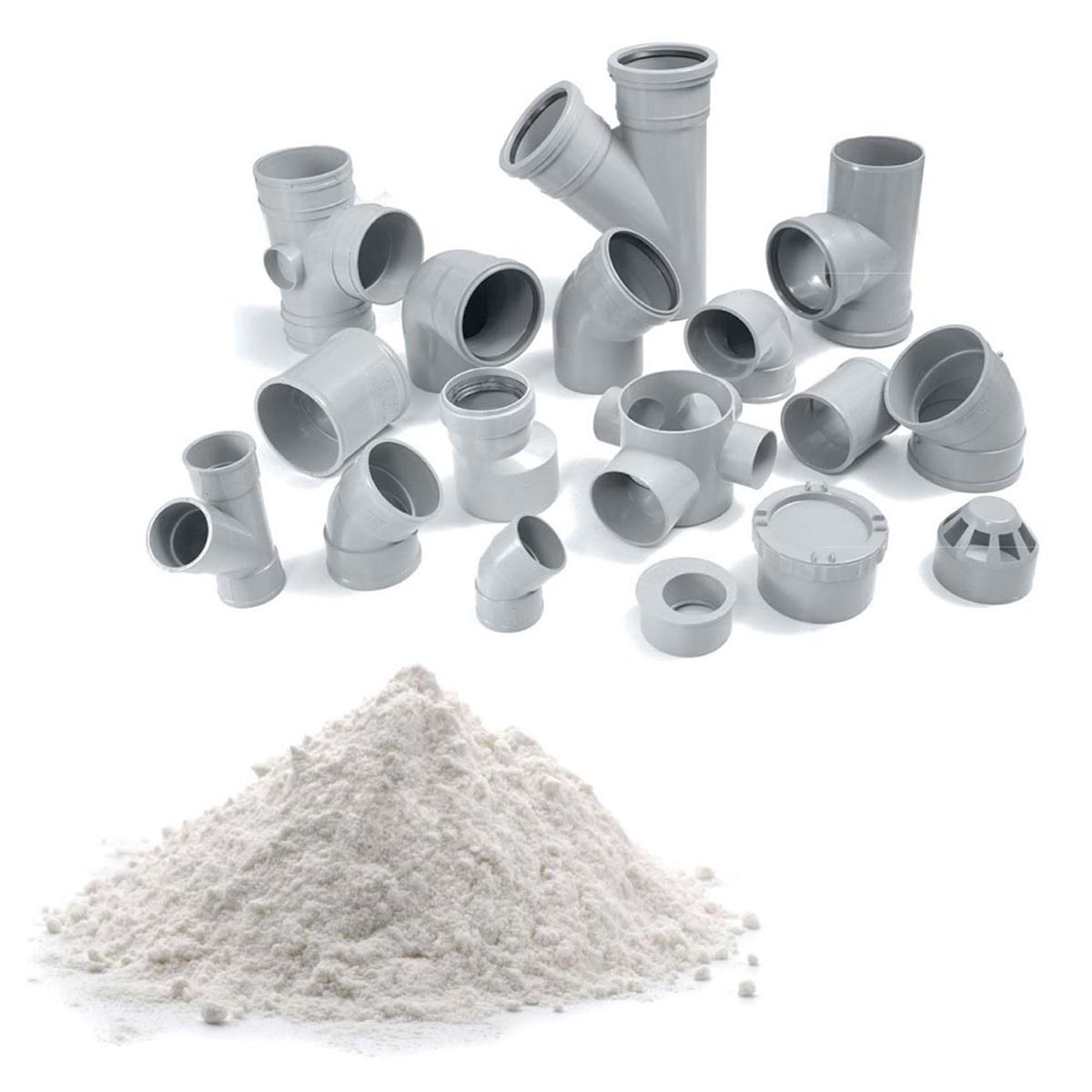PVC heat stabilizers play a vital role in ensuring the performance and durability of PVC pipes. These stabilizers are additives used to protect PVC materials from degradation caused by exposure to heat, light and oxygen. In this article, we will explore the application of PVC heat stabilizers in PVC pipes and their significance for maintaining pipe quality.
PVC, or polyvinyl chloride, is a versatile material commonly used in the construction industry for a variety of applications, including pipes, fittings and conduits. PVC pipes are widely used in water supply, drainage, irrigation and sewage treatment systems because of their durability, corrosion resistance, and ease of installation. However, PVC materials tend to degrade when exposed to heat and light, resulting in loss of mechanical strength and discoloration.
To overcome this challenge, PVC heat stabilizers are used to protect the PVC material from thermal degradation during the processing and service life of PVC pipes. The purpose of these stabilizers is to inhibit the degradation reactions that occur when PVC is exposed to heat and light, thereby extending the service life of the pipe and maintaining its mechanical properties.
There are many types of PVC heat stabilizers used for PVC pipes, including lead-based stabilizers, tin-based stabilizers, calcium-based stabilizers and organic-based stabilizers. Each type of stabilizer has its own unique properties and benefits, and choosing the most appropriate stabilizer depends on the specific requirements of your PVC pipe application.
Lead-based stabilizers, such as lead stearate and lead trivalent sulfate, have been widely used in the past due to their excellent thermal stability and cost-effectiveness. However, due to environmental and health concerns, many countries have phased out the use of lead-based stabilizers and replaced them with alternative stabilizers.
Tin-based stabilizers, such as dibutyltin dilaurate and tributyltin oxide, are known for their high thermal stability and clarity, making them suitable for applications where color retention is important. These stabilizers also effectively protect PVC pipe from degradation during processing and outdoor exposure.
Calcium-based stabilizers, such as calcium stearate and calcium zinc stabilizers, are non-toxic alternatives to lead-based stabilizers and are commonly used in the production of PVC pipes for drinking water and food packaging. These stabilizers have good thermal stability and weather resistance, making them suitable for outdoor applications.
Organic stabilizers, such as epoxidized soybean oil and methyltin mercaptide, are derived from natural sources and are popular due to their environmentally friendly and non-toxic properties. These stabilizers effectively protect PVC pipes from thermal degradation and are suitable for applications with strict environmental regulations.
During the manufacturing process of PVC pipes, PVC heat stabilizers are added to the PVC resin during the compounding process to form a homogeneous mixture. Stabilizers effectively inhibit degradation reactions caused by heat and light by forming complexes with PVC polymer chains. This ensures that the PVC pipe maintains its mechanical strength, color stability and dimensional integrity throughout its service life.
During the service life of PVC pipes, exposure to external factors such as sunlight, temperature fluctuations, chemicals, etc. will accelerate the degradation of PVC materials. PVC heat stabilizers play a vital role in protecting pipes from these degrading factors, ensuring their long-term performance and reliability.
The application of PVC heat stabilizers is crucial to maintaining the quality and performance of PVC pipes. These stabilizers protect the PVC material from thermal degradation and ensure that the pipe maintains its mechanical properties, color stability and dimensional integrity. As stabilizer technology advances, there are now a variety of options to meet the specific requirements of different PVC pipe applications. As the demand for high-quality and durable PVC pipes continues to grow, the importance of PVC heat stabilizers in the PVC pipe industry cannot be overstated.
Post time: Jan-10-2024




